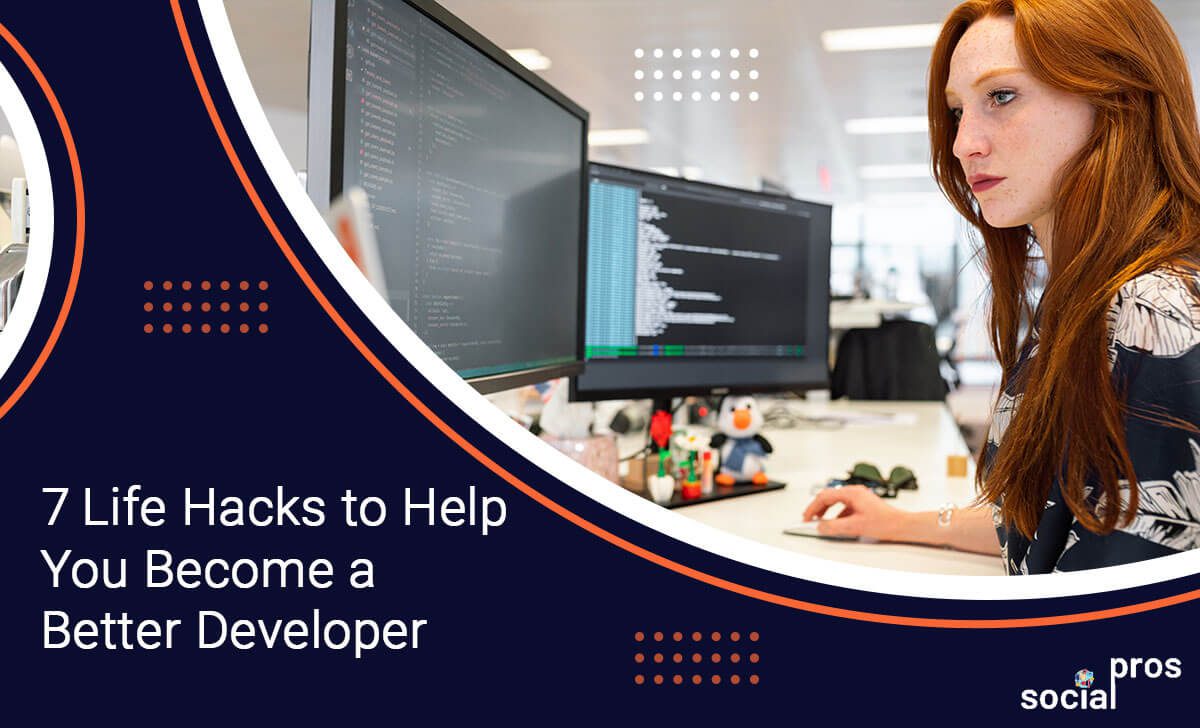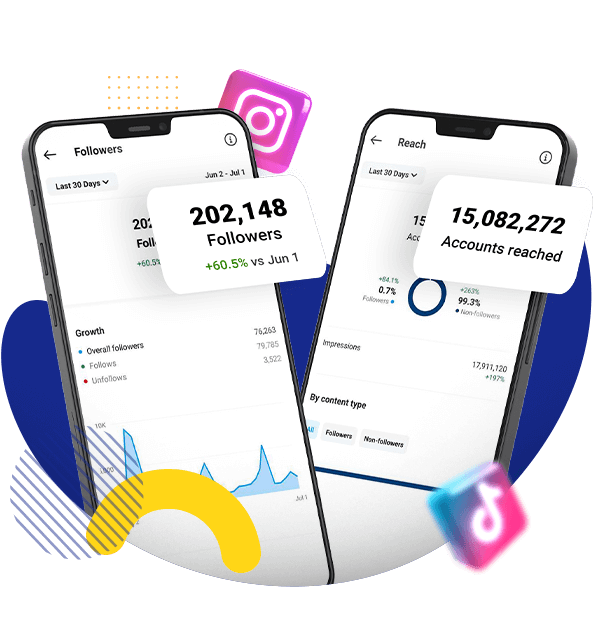Page Contents
Are you struggling to find a way to improve your coding skills? This blog post will discuss seven life hacks that have helped me become a better developer. We’ll explore methods for staying motivated and overcoming challenges and how to build the proper habits from the beginning. Many people want to become better developers, but they don’t know-how. This blog post will share seven life hacks that you can use to help yourself become a better developer. These life hacks are straightforward so that anyone can do them. These tips are designed for people at all levels of experience, so take a look and see what might work for you.
Boost your social media knowledge: Instagram Followers Apps for Getting Real Followers
7 Life Hacks to Help You Become a Better Developer
1. Make Code for Humans, Not Just Machines
Don’t write code that a computer can generate or check automatically, write code that a human can understand. The first and most crucial life hack is to remember that when you are writing code, you should always try to make the code as readable and understandable for humans as possible. In case you are stuck, you can consult experts like Yalantis.com for help.
You might have heard the adage “write for your audience,” and it’s a good rule of thumb when writing any content. However, I’d like to offer a variation on that theme: Instead of just preparing your code for humans, prepare it for other computers as well. This means that clean formatting is essential but so is keeping your code fully optimized. You need to do both of these things if you hope to be the best coder that you can be. This means taking control of how your code is displayed rather than just accepting the defaults. I use Prettier for this, but there are many options for formatting JavaScript, so pick one and run with it.
2. Debug Your Code
For some reason, people often don’t think of debugging as an essential skill to practice. But I’ll argue that it’s just as crucial (if not more) than writing clean code in the first place. The good news is that many of the same practices that make your code more accessible for others to work with will also make debugging less painful. When you use descriptive variable names, precise functions, and readable commenting, you’re making your code much more self-explanatory.
But honestly, if you want to level up your debugging game, there is no substitute for experience. Debugging is all about trial and error, so the more bugs you can reproduce (and fix) before reaching out for help, the better.
Boost your social media knowledge: 1000 Instagram Followers Free Trial
3. Make Code You Will Remember
I’ll be the first to admit that memorizing syntax is not my strong suit. If you’re like me, learning all of these function definitions would be incredibly tedious and probably pointless since most of them are never used in everyday coding. So how about turning this into a game instead? The next time you encounter some code that uses a function you’ve never seen before, make a mental note to check the documentation. Then immediately implement the function in your code and see if it solves your problem.
If you can build something with a technique, then it’s no longer foreign to you all of a sudden. If it sounds interesting, then go ahead and learn more about it, but if that function has already solved your problem, then there’s no need to memorize anything additional.
4. Use the Right Language to Solve the Problem
One of the first things I was taught (and that I teach others) is to always use the right tool for the job. This means favoring JavaScript libraries over convoluted jQuery code and mastering APIs like Lodash so you can quickly find an answer without needing to memorize all of its parameters. But it’s not just about choosing the best tool for the job; it’s also about using that tool properly.
For example, jQuery is often the right tool for the job because it’s packed full of features. But you can end up with a messy codebase if you use jQuery when only one or two small functions are needed. Instead, think about whether there might be a more straightforward way to accomplish your goal before reaching for the mouse.
Boost your social media knowledge: Instagram Unfollow Apps to Bulk Unfollow Accounts
5. Work One-On-One with Other Developers Any Way You Can
Writing clean code is something that everyone can benefit from, but that doesn’t mean it’s easy to do. The only way you’re going to improve is by practicing with real-world examples. And the best way I’ve found to practice is by pairing up with other developers on your team or in your community. This could be as simple as pairing up with a coworker at lunch or as involved as signing up for pair-programming sessions at your local JavaScript meetup. The point is that you need to be around other developers to learn from them.
This doesn’t mean that you can never practice on your own, but if you hope to level up, seek out other developers regularly. Getting help from offshore software development teams may help as well.
6. Create A Stimulating Environment
If you spend all day in front of a screen staring at monochrome code, then it’s no wonder that you’re not retaining anything. I’ve heard people argue that they need to code in a dull room without any music or distraction to focus. But personally, my creativity is most stimulated when I’m surrounded by color and sound.
This doesn’t mean that I can only code when I’m in a nightclub, but it does mean that I try to avoid coding during the day if possible. Instead, I’ll take breaks to study new programming concepts, read through tutorials, or play around with any idea that pops into my head. It’s also important to keep learning even when you’re not in front of a screen. For example, I recently bought the RxJS official book, but it’s still sitting on my desk half-read because I don’t have time to crack it open between meetings and bug fixes. Stop trying to be productive every minute of the day and ensure that your job isn’t killing you.
Boost your social media knowledge: How to Get More Followers on Instagram
7. Learn Techniques, Not Tools
If learning how to code is like learning a language, then it makes sense that we learn and memorize words and phrases (i.e., functions and methods) rather than entire grammar rules (i.e., programming paradigms). This means that you can use the same function in both Python and JavaScript without feeling overwhelmed by all of the syntax differences.
But learning common functions and methods isn’t enough to become a great developer. We also need to learn the underlying concepts behind the way we solve problems with code. For example: sometimes, we use programming paradigms like recursion or prototypal inheritance to simplify our solutions. But if you only know how to use these programming concepts, then you’ll never be able to come up with a solution on your own. Learn the underlying concepts behind the way we solve problems with code.
Final Words on Life Hacks to Help You Become a Better Developer
Code like a boss by learning the underlying concepts behind different programming paradigms and patterns. Try to find the simplest way to accomplish your goal before reaching for more complicated tools and techniques. And remember that it’s essential to put your education into practice by surrounding yourself with other developers and trying to work one-on-one whenever possible. And finally, if you want your code to be clean, you must take care of yourself. This means setting aside time for things like learning and practicing when you’re not at work and finding a way to escape the monotony of your day job when you can.
Check out more of our content:






